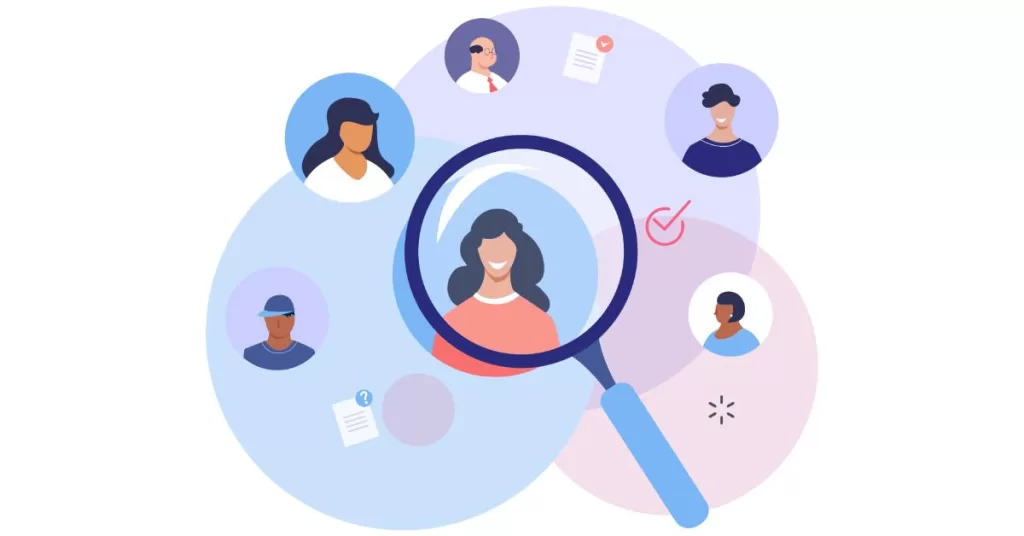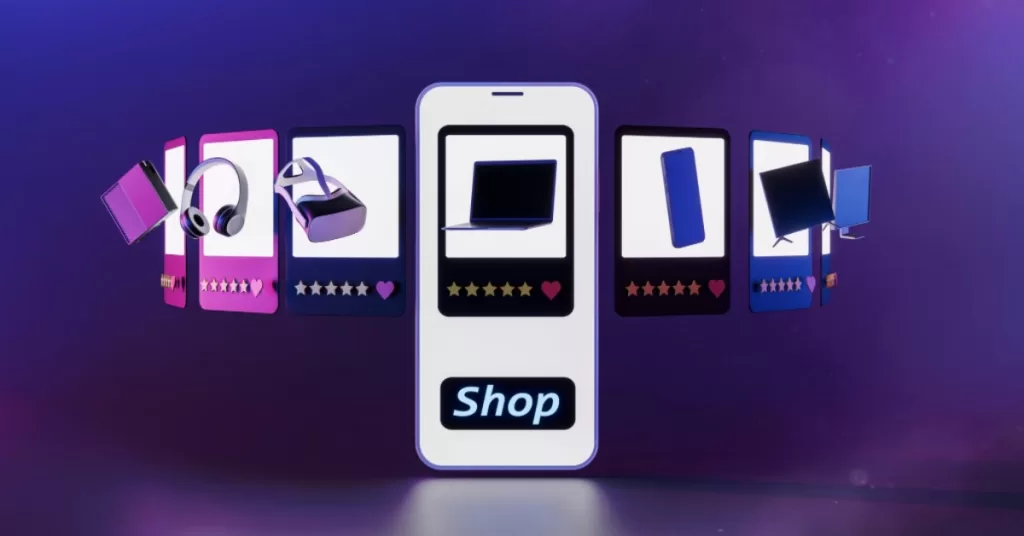At some point in time, your business will grow enough to require specialized marketing help. And you might want to outsource some of the activities and hire a marketing agency. Of course, deciding to work with an agency can feel like a big, often risky, decision. But the right partner can bring you expertise in areas where you might be lacking, help save you time, and free up resources for your business.
In this post, we’ll cover what you get when you hire a marketing agency, along with some do’s and don’ts of picking one. We’ll also address a few common objections people have about hiring an agency and why you don’t need to let them stop you from making a good decision.
How do you know when you need to hire a marketing agency?
Many businesses feel overwhelmed by the modern world of marketing. They have to be where their consumers are and that’s a problem. But the customers are everywhere online. They use so many apps and platforms to search, consume content, and shop that the average business struggles to market their products or services to them.
In the past, an online shop could get away with some Shopping and Search ads on Google paired with some remarketing Meta campaigns. And this got them great results! But nowadays, this is the bare minimum you need to get decent results.
So, the struggles I have heard companies have with their marketing efforts are:
- No clear overall strategy that encompasses all the marketing channels
- Not enough time to cover all the channels
- Not enough expertise to do a high-quality job
So if you are in this situation and feeling overwhelmed, you could use the help of an agency. When you hire a marketing agency, you gain access to a team of professionals who know their respective areas inside and out.
Their collective knowledge can help you and your business figure out how to solve your specific marketing problems and achieve your specific marketing goals.
What to do before you hire a marketing agency

Before you start looking to hire a marketing agency, you will need to have some information ready. This will help you communicate your expectations clearly and also give the agency the necessary information about your business.
This is a step many companies are skipping and will just try to ‘wing it’ when finding an agency. But having them clearly written down will help guide the conversation. Moreover, telling the agency the current situation and the goals that you have will allow them to come up with a customized plan for your business.
Here are some of the points you will need to cover:
- Your target audience:
- Who is your ideal customer?
- What are their needs, wants, and pain points?
- If you have a customer avatar, you can share it with the agency.
- Your current marketing efforts:
- Which marketing channels are you currently using?
- What are the strengths and weaknesses of efforts?
- Which areas do you want to improve?
- What does your customer journey look like?
- Determine your budget:
- What is your total marketing budget?
- How much are you willing to spend on the marketing agency’s services?
- Define the expectations:
- What do you want the agency to handle?
- How will this integrate into your overall marketing efforts?
- What level and what channels of communication do you expect?
- How often do you want them to send performance reports?
- Define your business objectives:
- What is the primary goal you want to achieve?
- How do you measure its success?
- How does the agency’s work influence this?
A good tip is to use the SMART method when you define your goals. With this, you can ensure that your goals are specific, measurable, achievable, relevant, and time-bound.
Some examples of SMART goals you can use when hiring a marketing agency are:
- I want to increase my organic traffic by X% within 18 months.
- I want to have X% revenue from new customers for Black Friday.
- I want to increase my conversion rate by X% by the end of Q2.
Choosing a marketing agency
I will not cover many things about finding a marketing agency. This can be done by asking your connections for some recommendations, searching online, or from other sources. Finding agencies is rather easy, but finding a good one is another story.
To check if an agency is fit for your needs, you will need to look at a few factors:
Expertise and experience: do they offer the services you are looking for and do they have experience in your industry or niche? Look on their website for case studies or any other materials that could help you find more details. Also, look at their testimonials and reviews to see what other people are saying about their service.
Communication: you will need to make sure that the agency’s communication style is aligned with your expectations. Otherwise, assess if their style can be something that you can adapt to.
Collaboration level: you need to know what type of agency you are looking for. Do you only want someone to execute the plan you already have? Or do you want someone to develop it and come up with new ideas?
Transparency: this is a huge one. You ideally want to find an agency that is clear in their reporting. Also, assess how proactive they are when it comes to good news, but especially the bad news. If they can report both types with ease and they also take accountability (in case they screwed up), it is a big plus.
Pricing and impact: When it comes to pricing there are multiple options agencies can go for. They can choose an hourly rate, a tier-based pricing, an ad spend percentage commission, add-on services, etc. The most important thing here is that you know upfront how much it is going to cost, and that the price is within your budget. Also, don’t always judge an agency by their price. Take the impact they will deliver into consideration. You can find some cheap agencies or freelancers out there, but the results might not be what you’re looking for.
Don’t be afraid to ask questions: you are trying to find someone to help you grow your business. You need to make sure they will be the right partner for you. And they don’t need to be questions about your specific case. They can also be probing questions to help you discover more things about them. Here are some examples:
- What was the greatest achievement you have gotten for a client?
- What is the worst client horror story and how have you solved it?
- How do you know if a client is not good for your agency?
Red flags when hiring an agency
In recent years there has been a wave of people online teaching how to open a marketing agency and selling courses for it. While this is not inherently bad, the way most of them did it, was.
They were promoting the marketing agency business idea as a gold mine and a quick way of making money. And a lot of youngsters jumped on the bandwagon and started marketing agencies without any knowledge of what they are doing.
But they are just a drop in the bucket compared to all the other freelancers or one-man agencies offering sub-mediocre services for premium prices.
So, sometimes, while talking to agencies, you will also find some which are not that straightforward. So, let’s have a look at some of the red flags you might encounter.
Data ownership: this is a big one. If the agency tells you that they will create a (new) account for you (usually a Google Ads account), run! Usually what happens is that you will not have access to that account. The only information you will get is the reports they periodically send you. And if you want to switch agencies, they will either charge you an exorbitant fee or they will straight up refuse to hand over the account.
They take a while to reply: if you have contacted or requested to be contacted by an agency, most of them will reply within 24 hours (excl. weekends, holidays, etc.). If they take a few days, weeks, or even months (I’ve heard some cases), imagine how slowly will they implement the changes you request. Or even worse, how fast do you think they will solve urgent issues?
They communicate poorly: This is a broad one, and it is hard to explain what bad communication looks like. But trust me, it’s one of those cases of when you see it, you know it. Think about cases in which they will have to explain complex ideas. If they don’t know how to communicate clearly and simply, it will be hard to follow the conversation. Or even worse, their English level is so poor that you can’t decipher their messages.
Focus on vanity metrics: If the whole conversation revolved around how they will increase your traffic, CTRs, and reduce your CPCs, it’s a red flag. This means that they are not taking the time to understand your business. They don’t see the whole picture and can’t discuss how their work will affect your bottom line.
Agencies with a one-size-fits-all approach: Your business is unique. It may be that it has similarities with other businesses, but they are not the same. So why should your marketing be the same? Agencies that offer a standardized package of services for all of their customers, usually don’t take the client’s needs into account. They will do their best to get to fit your goals into their way of doing things and hope for the best.
Agencies that are too cheap: This is a controversial one. Price doesn’t necessarily equate to quality. But when it comes to cheap marketing services, well…the agency might cut some corners. They might not spend as much time as needed on your accounts, they might not have the knowledge that you require, or they might just know that the quality of their work cannot be priced higher. For this, you will just need to make sure the price sounds reasonable and fair for both parties.
Vague statements: A lot of agencies are trying to impress their leads. And, to some extent, they need to. But if they start promising amazing (almost unrealistic) results without being specific about their methods, it is a red flag. There are agencies out there claiming they have a ‘secret sauce’, ‘proprietary methods’, ‘revolutionary strategies’, and all sorts of things like that. But if they can’t explain how exactly these methods work, most likely, there is no method.



